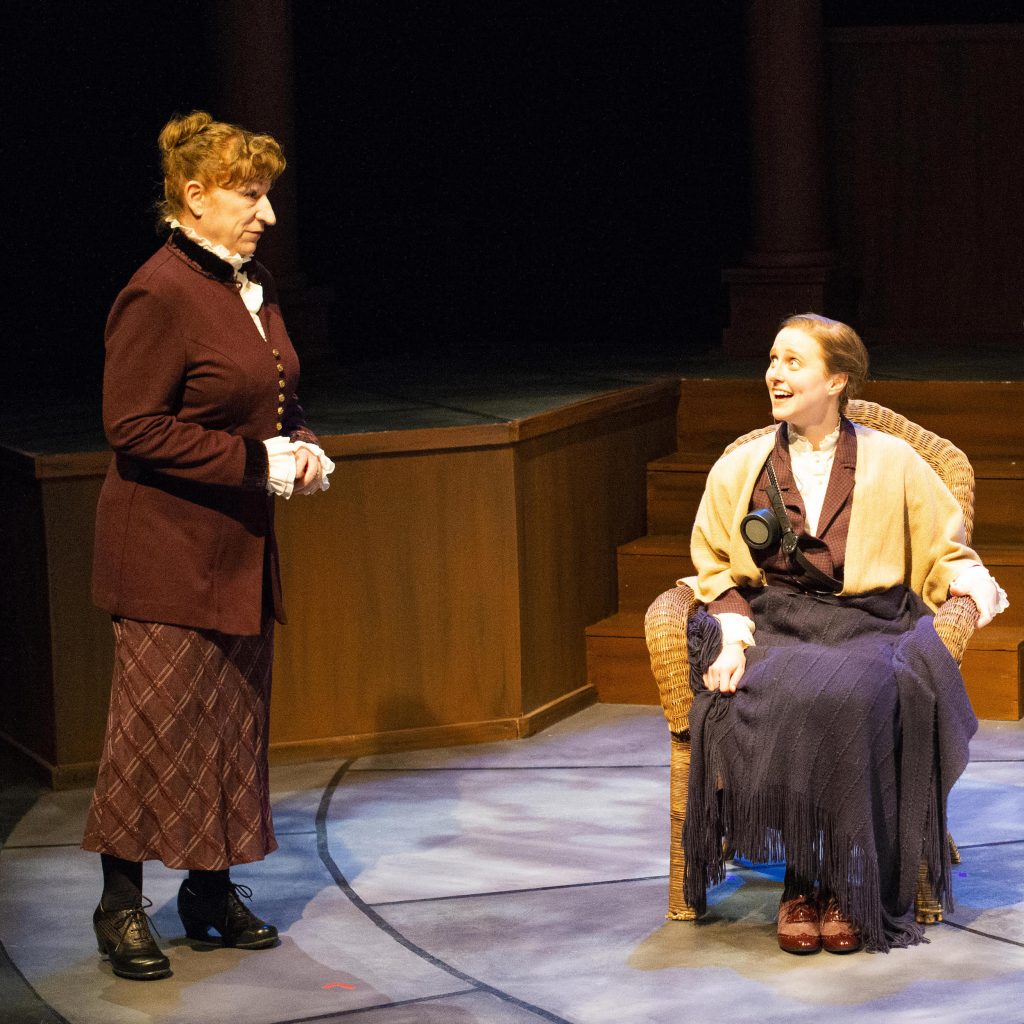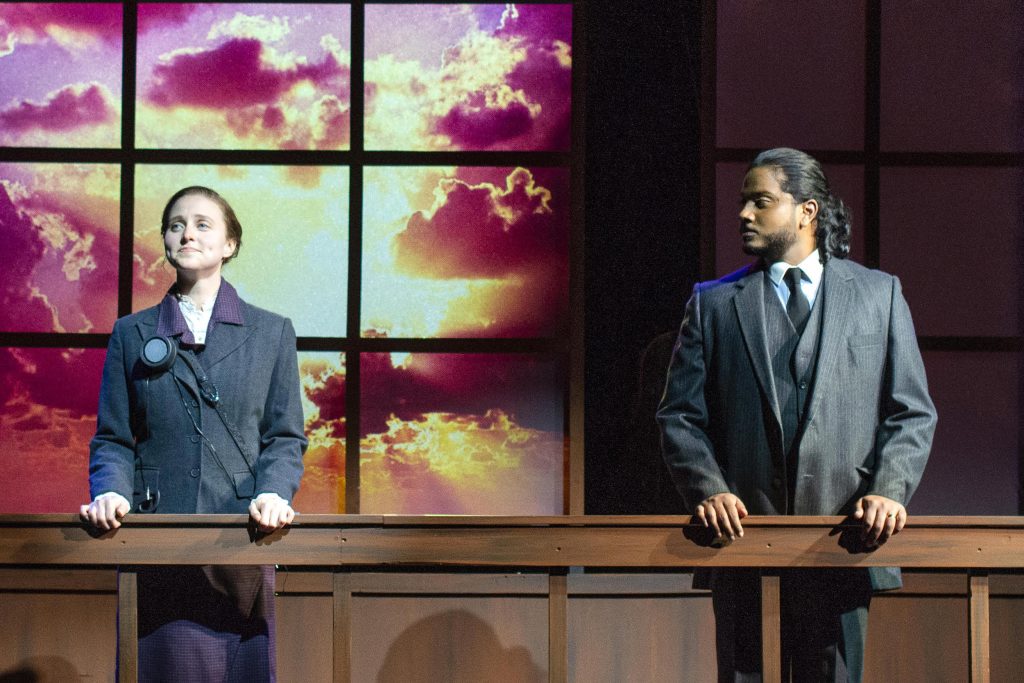
Credit: Doug Williams
Streaming online until April 18, 2021
Tickets from $26 at www.unitedplayers.com
Should the prohibition against in-house performances be lifted, Silent Sky will also be presented live at the Jericho Arts Centre, Thursday-Saturday at 8pm and Sundays at 2pm until April 18.
Posted March 28, 2021
Silent Sky, written by Lauren Gunderson, falls into the category of ‘Who knew?’
Did you know that Henrietta Swan Leavitt (1868-1921), an American astronomer, discovered the relationship between luminosity of pulsating stars and distance in space? Her discovery led to the answer of what was known by early astronomers as the “Great Debate”, namely, does Earth exist in a finite galaxy, the centre of which is our sun, or is our galaxy merely one of an infinite number of galaxies in an expanding universe? Astronomers like Edwin Hubble stood on the metaphorical shoulders of Henrietta Leavitt who was nominated for a Nobel prize but died before she could receive it.
Leavitt’s story is all the more interesting because she was the daughter of a Congregational Church minister and she remained faithful to the church throughout her life. How did she reconcile probing the secrets of the universe with the Christian creation story?
Playwright Gunderson doesn’t explore that mystery but provides a fairly linear account of Leavitt’s life and adding, in the process, some romantic embellishment.
Directed by Laura McLean for United Players, this is a solid, good-looking production with set design by Todd Parker, period costumes by Julie White, and original music by Jenny Giering. Lighting design by Mark Carter is particularly effective especially as Leavitt’s sister Margaret, left behind in Wisconsin, pleads with Henrietta to come home.
United Players has very successfully shifted from stage to film; technical direction by Leighton Taylor keeps this presentation seamless. (My poor internet connection was the only impediment to smooth sailing.)
Disappointed to discover that she would not be allowed near the telescope at the Harvard observatory – despite being a graduate in astronomy at Radcliffe College – Henrietta toiled away documenting photographs taken by male astronomers of stars. Unstoppable, she began working late into the night on her own research. Small and spunky actor Jenna Hill captures outspoken, determined Henrietta with passion and commitment. (I might have missed something but only until much later in the play did I discover Henrietta had a hearing disability; hence, the earpiece and the strange apparatus attached to Hill’s jacket.)

Credit: Doug Williams
Henrietta worked alongside two other women, called “computers” by their boss, observatory director Edward Charles Pickering: heart-of-gold Williamina Fleming (Rhona McCallum Lichtenwald, sporting a great Scottish accent) and Annie Cannon (Anna Bui who, later, as the play and the women’s movement progresses, wears trousers).
Rebecca deBoer as Henrietta’s sister Margaret brings the Leavitt family into focus. While at first Margaret is eager to see Henrietta follow her dreams, as time goes by she becomes less and less supportive and more frustrated at having to deal with their father’s failing health on her own. DeBoer always brings warmth and compassion to the stage and, eventually, Margaret does an about-face.
For whatever reason, the playwright introduces a love interest in the character of Peter Shaw (Karthik Kadam). While it adds some welcome conflict into Silent Sky, if it’s not actually historically accurate, it undercuts Henrietta’s real-life story which is interesting enough. Either way, Kadam makes Shaw a sweetly sympathetic character.

Credit: Doug Williams
At two hours, the play feels long and, for me, gets tangled in explaining the science behind Henrietta’s discovery. But the production definitely has its moments especially when Peter Shaw, who clings to the notion that our galaxy is all there is, finally opens his mind – standing with Henrietta under a star-filled sky – and accepts her proof that “the universe is vast”. As she says, “Our universe is only one of millions – maybe billions.”
Makes you feel very small, doesn’t it?

